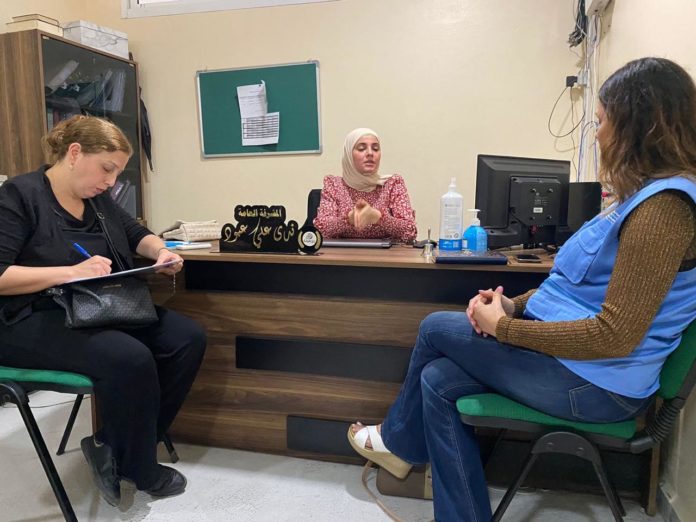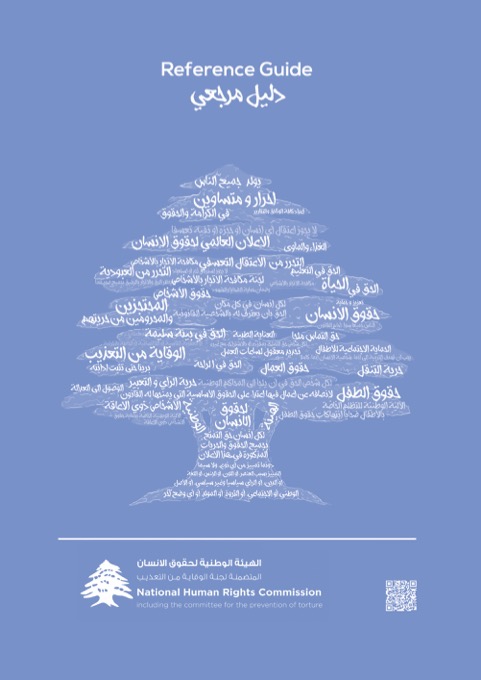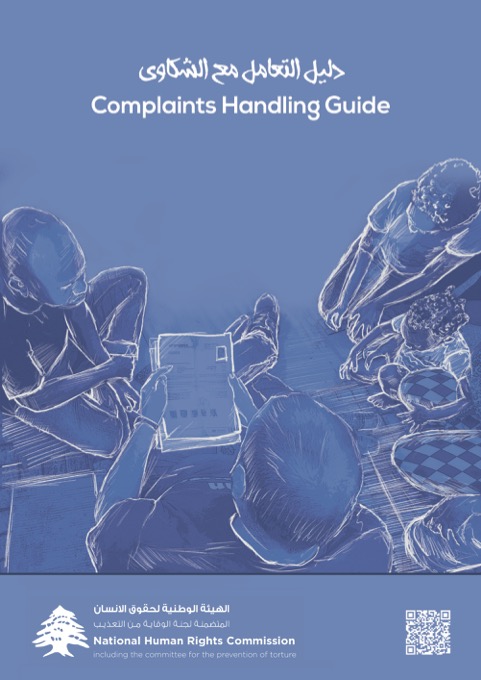هذه المقالة متاحة أيضًا بـ: العربية (Arabic)
As part of its mission to document complaints and violations affecting displaced persons and to relay these to the relevant authorities, as well as to coordinate between the various governmental entities working to address the humanitarian consequences of the ongoing Israeli aggression on Lebanon, the National Human Rights Commission, including the Committee for the Prevention of Torture (NHRC-CPT), accompanied by several volunteers, visited Darb Al-Tabbaneh School in Tripoli. The delegation comprised Dr. Rana Al-Jammal, a lawyer and Secretary-General of the Commission, volunteer lawyer Manar Haddad, and food and water safety specialist Mira Hajja Kashif. The goal of the visit was to assess the conditions of the displaced families of Syrian nationality and determine the extent to which their fundamental rights were being upheld.
The school, which is not officially designated as a center for receiving displaced persons, temporarily accommodated 38 Syrian families when they sought refuge in the courtyard of the nearby Al-Taqwa Mosque during heavy rain. Sheikh Mahmoud Ahmad Fares, the school’s owner, obtained temporary permission from the Lebanese Army to host the families until they could find temporary shelter.
With the Minister of Education’s decision to reopen schools, most of the displaced persons were moved to camps established by the United Nations in the Al-Bireh area. However, seven families remained at the school, hesitant to move to the camps out of fear of being deported to Syria.
During an interview with Sheikh Mahmoud Fares, he explained that the remaining families at the school were offered several options:
- Relocate to the camps established by the United Nations in the Al-Bireh area.
- Move to the nearby Abed Al-Rahman Mosque.
- Work at one of the institutions affiliated with the Al-Manhaj Al-Khairi Association, managed by Sheikh Mahmoud Fares, in exchange for housing.
In the interview with the headmistress, Mrs. Nada Aboud, she stated that the school initially received 38 displaced families. As of now, only seven families remain, awaiting placement in shelters. She also clarified that the school largely depends on individual donations to meet the displaced persons’ needs, such as cleaning supplies, food, and potable water.
Health and Basic Services
Mrs. Aboud mentioned that the Al-Ikhlas Medical Center is responsible for providing healthcare and medications for the displaced persons, while the Relief Center provides lighting through rechargeable lamps. Food, however, is provided through individual donations, as the school is not an official center for displaced persons. Water for drinking and bathing is available, but the bathrooms lack heating systems.
Basic Needs of the Displaced Persons
The headmistress pointed to a significant shortage of basic needs such as mattresses, blankets, and undergarments. The school relies on donations from the nearby Al-Taqwa Mosque, which continues to host displaced persons in its courtyard.
Shortages in Essential Supplies
There is a critical shortage of cleaning supplies, baby diapers, and sanitary pads for women. Additionally, the school suffers from an electricity shortage, relying heavily on solar power, which does not fully meet its needs.
Conclusion
Following the inspection of the building, it became clear that the school was not fully equipped to accommodate displaced persons. Therefore, we call on the relevant authorities to intervene to secure permanent shelter centers for the remaining families and ensure that they receive their right to safe and healthy housing.


